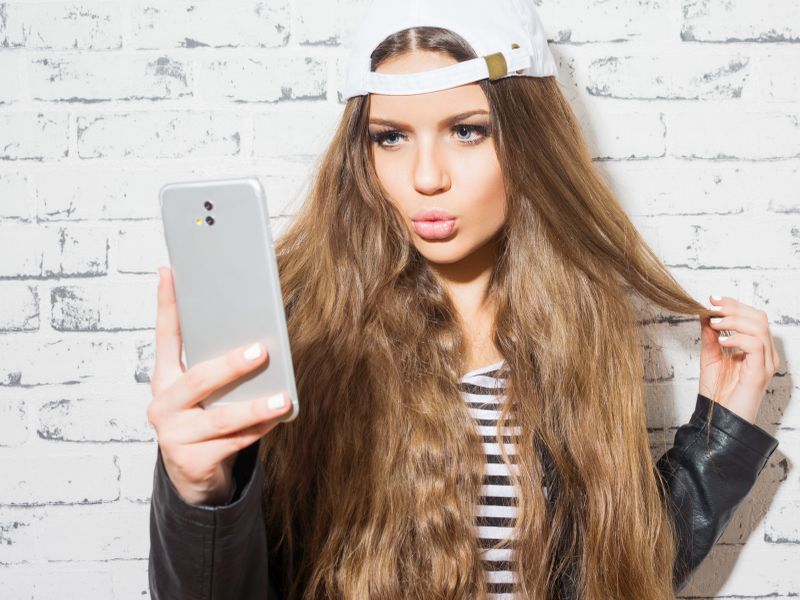
Posting selfies on social media won't do you any favors in terms of likability.
A small new study finds that many people take a dim view of others who post a lot of selfies on Instagram.
Researchers at Washington State University conducted an experiment to determine which posts lead to snap judgments about the user's personality.
The upshot: People who posted lots of selfies were uniformly regarded as less likeable, less successful, less adventurous and more insecure than those who share photos taken by somebody else.
Lead author Christopher Barry, a professor of psychology at WSU, said the findings reveal more about perception than personality.
"Our research indicates that selfies are not necessarily a sign of self-absorption, but there is a chance that others may view us that way based on posting many selfies," he said.
In the study, 119 college students were asked to rate the Instagram profiles of 30 students from another university.
Those who posted a posed photo taken by someone else - also known as a "posie" -- were seen as more likeable, more successful, having greater self-esteem and being more outgoing. Viewers also saw them as having greater potential for being a good friend.
The reverse was true for students who had posted more selfies.
"It may be that posies seem more natural or realistic, that selfies have taken on a negative connotation in pop culture, or that people who post posies are viewed as more sociable," Barry said. "People who post selfies may be judged as not having others around."
Selfies that focused on physical appearance, like flexing in the mirror, drew particularly negative reactions. And the older the viewer, the more he or she tended to rate profiles negatively.
"To speculate, I would say that it's probably a general tendency that we have to judge younger people or the next generation relatively negatively," Barry said.
The study also found that students who were regarded as highly self-absorbed tended to have a bigger presence on the photo-sharing platform. They had more followers and followed more users.
Instagram has more than 100 million active users in the United States, and about 1,000 selfies are posted there every second.
Dr. Sudeepta Varma, a psychiatrist and assistant professor of psychiatry at the NYU Langone Medical Center in New York City, reviewed the study and explained the obsession.
"We want to feel like we matter, that we are appreciated [and] validated," she said. "[We want] confirmation that we are attractive, to boost our confidence and self-esteem, to receive praise from others, generate attention … validate an experience.
"Because if the tree fell and no one was there to Instagram it, did it really happen?" Varma said.
Though the personality traits of selfie posters aren't known, Varma wonders if the phenomenon reflects an era of self-absorption.
"The question becomes, 'are we as a society more self-absorbed than before?'" she said. "It's unclear -- maybe we always have been but these tools allow us to express it and take it to the next level."
For those in search of validation, Varma recommends looking offline, too.
"Engaging in hobbies, spending time with your loved ones, pursuing a passion project [and] giving back to your family or community all build self-esteem in a more permanent and less approval-dependent fashion," she said.
Barry encourages users to be aware of the twofold nature of the online world.
"We should remember that despite our reasons for posting something, other people may perceive our posts in ways that are not intended," he said. "The audience is an important part of social media."
The study was published recently in the Journal of Research in Personality.







0 Comments